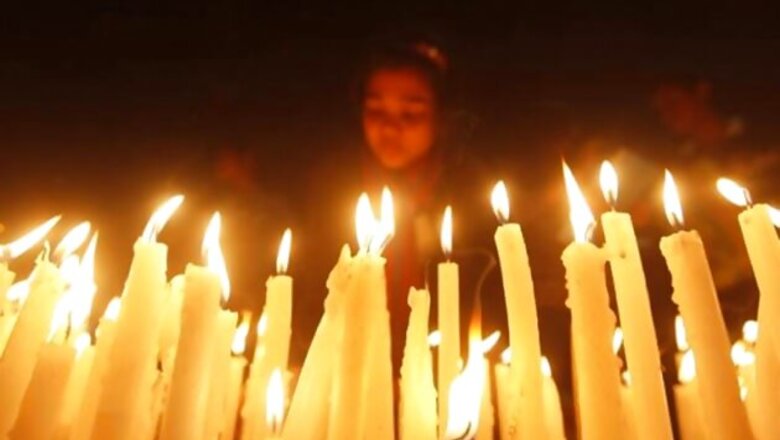
views
Washington: Braving chilly weather, Indian-Americans gathered at the Gandhi Statue in Washington to hold a candle light vigil for the 23-year-old Delhi gang rape victim, who died after battling for life for 13 days, as US media slammed the "reprehensible crime" saying half of India's population "lives in fear of unspeakable violence."
"Delhi bus incident is our 'Rosa Parks bus incident'. Hopefully we will discuss gender violence more and do some...thing about it," a group of Indian-Americans, who held the candle light vigil last night, said on their Facebook page, especially created for the occasion.
The group organised the candle light vigil to mourn the death of the girl -- who was brutally gang-raped and assaulted by six men in a moving bus in Delhi on December 16 -- at the Gandhi Statue despite very cold weather with temperatures below freezing level.
Meanwhile, mainstream US newspapers continued to give prominent coverage to the death in Singapore of the gang-rape victim, whose body was cremated in Delhi this morning.
"The event has shocked Indian society, and many women in other parts of the world are also finding themselves compelled to speak out," wrote Jamila Bey -- a journalist based in Washington, DC, where she hosts the weekly radio show 'The Sex, Politics And Religion Hour' -- in The Washington Post.
"In India, the fight today is in the streets. But the fights and the protests must continue to be waged in the voting booths, on the editorial pages and even by leaving the venerated institutions, from churches to Congress, that frequently treat women as inferior to men," Bey said. The case of the gang-rape victim "has seemed to snap India to attention about its endemic sexual violence problem," The Washington Post said.
The CNN reported how law enforcement authorities tried to prevent demonstrations. It noted that police banned protests in Raisina Hills and closed roads leading to the area, fearing a possible repeat of the furious, large-scale demonstrations that occurred last weekend. It also mentioned that 10 metro stations were ordered closed.
In an editorial, The New York Times said India must work on changing a culture in which women are routinely devalued. "Many are betrothed against their will as child brides, and many suffer cruelly, including acid attacks and burning, at the hands of husbands and family members," it said.
"India, a rising economic power and the world's largest democracy, can never reach its full potential if half its population lives in fear of unspeakable violence," the daily said.
"This reprehensible crime reflects an alarming trend in India, which basks in its success as a growing business and technological mecca but tolerates shocking abuse of women," it said.




















Comments
0 comment